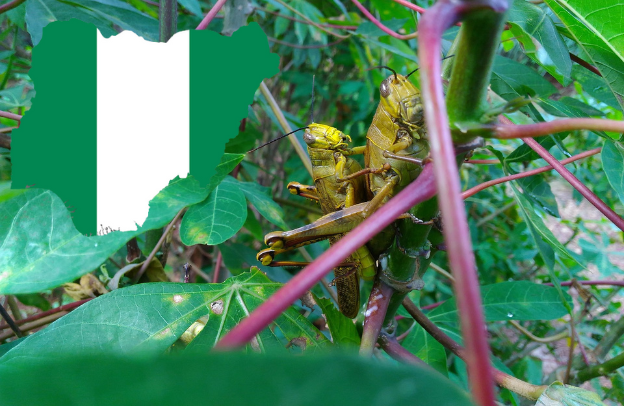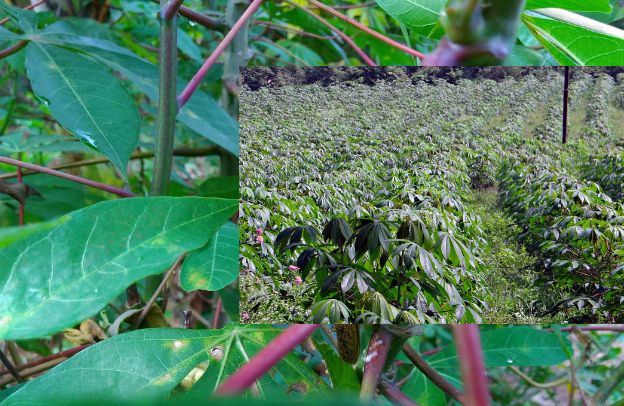The Economic Benefits Of Cassava Cultivation In Nigeria: The Hidden Goldmine for African Diaspora Entrepreneurs

Imagine transforming a humble root into a billion-dollar industry that not only generates wealth but also addresses food security and unemployment in Africa. What if the key to this transformation lies beneath the soil, waiting for visionary entrepreneurs like you to unearth its potential?
Learn How to Leverage Your Story through our Story To Asset Transformation (S.A.T) Framework.
The Untapped Potential of Cassava to the Nigerian and African Economy
Cassava, known scientifically as Manihot esculenta, is more than just a staple food in many African households. It’s a versatile crop with applications ranging from food products to industrial raw materials.
According to Statista Nigeria stands as the world’s largest producer of cassava, contributing approximately 20% of the global output. In 2021, Nigeria’s cassava production reached an impressive 63 million metric tons.
Addressing food security challenges is crucial for the future of Africans and Nigerians. Despite cassava’s economic importance to Nigeria’s growing population, significant post-harvest losses persist. A study conducted in Anambra State, located in southeastern Nigeria, assessed these losses along the cassava value chain.
Researchers employed a descriptive survey design, focusing on cassava farmers across the state’s four Agricultural Zones: Onitsha, Aguata, Awka, and Anambra. Utilizing multistage, purposive, and random sampling techniques, primary data were collected through well-structured questionnaires.
Analysis using descriptive statistics, Shannon’s diversity index, and the Tobit regression model revealed total post-harvest losses amounting to 266,116 kg.
The highest losses occurred during harvesting (approximately 55%), followed by processing (33%), and distribution (12%). Key factors contributing to these losses included inadequate processing skills, farmers’ socioeconomic status, insufficient planning, and pest and disease infestations.
The study recommends implementing policies to reduce these losses, particularly by providing adequate training for local farmers in cassava processing. These post-harvest losses present a unique opportunity for African diaspora entrepreneurs to invest in cassava processing, transforming potential waste into profitable products.
Why Cassava?
- Versatility: Cassava can be processed into various products, including flour, starch, ethanol, and even biofuels. Its derivatives are essential in industries such as food and beverages, textiles, paper, and pharmaceuticals.
- Resilience: Cassava thrives in diverse climatic conditions and poor soils, making it a reliable crop in the face of climate change.
- Market Demand: The global demand for gluten-free products has surged, positioning cassava flour as a preferred alternative to wheat flour. Additionally, cassava starch is a sought-after commodity in multiple industries.
The Role of the African Diaspora
As a member of the African diaspora, you possess a unique position to bridge the gap between local cassava producers and global markets. Your international exposure, access to capital, and networks can drive the transformation of Nigeria’s cassava industry. Here’s how you can get involved:
- Investment in Processing Facilities: Establish modern processing plants to convert raw cassava into high-quality flour, starch, and other derivatives. This not only reduces post-harvest losses but also adds value, leading to higher profit margins.
- Training and Capacity Building: Share knowledge and expertise with local farmers on best agricultural practices, processing techniques, and quality control to enhance productivity and product standards.
- Market Expansion: Utilize your international networks to open new markets for cassava products, both within Africa and globally.
The Economic Benefits of Cassava
Cassava farming is a significant contributor to Nigeria’s Gross Domestic Product (GDP), with the crop accounting for about 10% of the country’s agricultural output. The cassava industry in Nigeria has grown in recent years due to increased demand for cassava products both locally and internationally. Investing in cassava processing offers numerous economic advantages:
- Job Creation: Establishing processing facilities and related enterprises can generate employment opportunities, particularly in rural areas, thereby reducing poverty and rural-urban migration.
- Foreign Exchange Earnings: Exporting processed cassava products can earn valuable foreign exchange, bolstering Nigeria’s economy.
- Food Security: By reducing post-harvest losses and increasing the availability of cassava products, food security is enhanced, providing affordable nutrition to the populace.
According to the Food and Agriculture Organization, cassava is not only a vital food crop but also a powerful driver of economic stability for producing households.
As one of the most significant cash crops, cassava generates income for more households than any other staple, playing a crucial role in poverty alleviation and improving livelihoods across rural communities.
See also: Cassava: A Sustainable Solution to Combat Food Insecurity in Nigeria
Success Stories
Are there some success stories to learn about cassava farming in Africa? Of course. Several entrepreneurs have already tapped into the cassava industry’s potential. Agriculture-focused private equity firm Pearl Capital Partners, manager of the Yield Uganda Investment Fund, sees growth potential in the cassava value chain in Uganda.
In 2021, the firm invested $2.5 million in cassava producer Pura Organic Agro Tech Ltd to set up a vertically integrated cassava processing plant to produce high-quality cassava flour, tapioca starch (an industrial input used in the packaging industry) and sago (an edible starch delicacy popular in India).
Uganda has a natural advantage when it comes to the production of cassava, in terms of its soil and its climate. The opportunity presented to Yield Fund was to commercialise and industrialise cassava and, in the process, uplift the living standards of smallholder farmers in Uganda with around 1.6 million households dependent on cassava for their livelihoods.
We want to play a role in changing cassava from a food security crop into a cash crop,” said Wanjohi Ndagu, a partner at Pearl Capital Partners. Expanding upon the challenges and mitigation strategies in Nigeria’s cassava processing industry reveals critical areas requiring attention:
Infrastructure Deficiencies:
Nigeria’s cassava industry faces significant infrastructure challenges, particularly in transportation and storage. Inadequate road networks and storage facilities lead to delays and post-harvest losses, reducing the quality and quantity of cassava products. To address these issues, investing in reliable transportation systems and modern storage solutions is essential. Enhancing rural road networks facilitates efficient movement of raw materials and finished goods, while improved storage infrastructure helps maintain product quality and extends shelf life.
Collaborative efforts between the government and private sector are crucial to develop and maintain this infrastructure, ensuring a more resilient cassava value chain.
Access to Finance:
Securing adequate financing remains a significant hurdle for many stakeholders in Nigeria’s cassava industry. Small and medium-sized enterprises (SMEs) often struggle to obtain the necessary capital for scaling operations, adopting modern technologies, or expanding processing capacities. To overcome this, leveraging diaspora networks can be a viable strategy.
African diaspora entrepreneurs can pool resources, form investment groups, and establish partnerships to inject much-needed capital into the industry. Additionally, exploring funding opportunities from international development organizations, such as grants and low-interest loans, can provide financial support.
Engaging with local financial institutions to develop tailored financial products for cassava processors can also enhance access to credit, fostering growth and innovation within the sector.
Regulatory Hurdles:
Navigating the regulatory landscape in Nigeria can be complex, with varying requirements across federal, state, and local levels. Compliance with these regulations is essential to ensure product quality, safety, and marketability. To mitigate regulatory challenges, engaging proactively with local authorities is advisable.
Establishing open lines of communication can aid in understanding specific requirements and obtaining necessary certifications or licenses. Participating in industry associations or working groups can also provide platforms for dialogue, enabling stakeholders to advocate for more streamlined and supportive regulatory frameworks.
Staying informed about policy changes and actively contributing to policy discussions can help create a more conducive environment for cassava processing enterprises.
By addressing these challenges through strategic investments, collaborative efforts, and proactive engagement with regulatory bodies, Nigeria’s cassava processing industry can unlock its full potential, contributing significantly to economic development and food security.
Other Considerations About The Benefit Of Cassava Production In Nigeria
Nigeria is the world’s largest producer of cassava, contributing approximately 20% of the global output. Despite this impressive production, the country has yet to fully capitalize on cassava’s economic potential. A significant portion of the harvest, estimated at 20-30%, spoils post-harvest due to limited processing facilities.
This loss underscores the urgent need for investment in processing infrastructure to transform raw cassava into high-demand products such as flour, starch, ethanol, and animal feed.
Market Demand
The global demand for cassava-based products is on the rise, driven by their versatility and applications across various industries. Cassava flour, for instance, serves as a gluten-free alternative in the food industry, while cassava starch is a valuable input in textiles, paper, and pharmaceuticals.
By investing in cassava processing, you can tap into these expanding markets, both domestically and internationally, positioning your enterprise for growth and profitability.
Socio-Economic Impact
Beyond financial gains, your investment can have a profound impact on Nigeria’s socio-economic landscape. The cassava industry is a significant contributor to Nigeria’s Gross Domestic Product (GDP), accounting for about 10% of the country’s agricultural output.
By establishing processing facilities, you create employment opportunities, enhance rural incomes, and stimulate local economies. Moreover, value-added processing can reduce post-harvest losses, ensuring food security and increasing revenue for farmers and processors alike.
Empowering Change
As a member of the African diaspora, you possess unique insights and resources that can drive innovation and growth within Nigeria’s cassava industry. Collaborating with local farmers, investing in modern processing technologies, and advocating for supportive policies can lead to a more resilient and prosperous agribusiness sector.
Your engagement not only bridges the gap between continents but also fosters sustainable development and self-reliance in Nigeria.
Embrace this opportunity to transform Nigeria’s cassava roots into the foundation of Africa’s agribusiness revolution. Your investment can catalyze economic growth, improve livelihoods, and position you at the forefront of a thriving industry.
Conclusion
The cassava industry in Nigeria stands at a pivotal moment, presenting a transformative opportunity for African diaspora entrepreneurs like you. By investing in cassava processing, you can achieve substantial financial returns while significantly contributing to Nigeria’s socio-economic development.
Learn How to Leverage Your Story through our Story To Asset Transformation (S.A.T) Framework.





